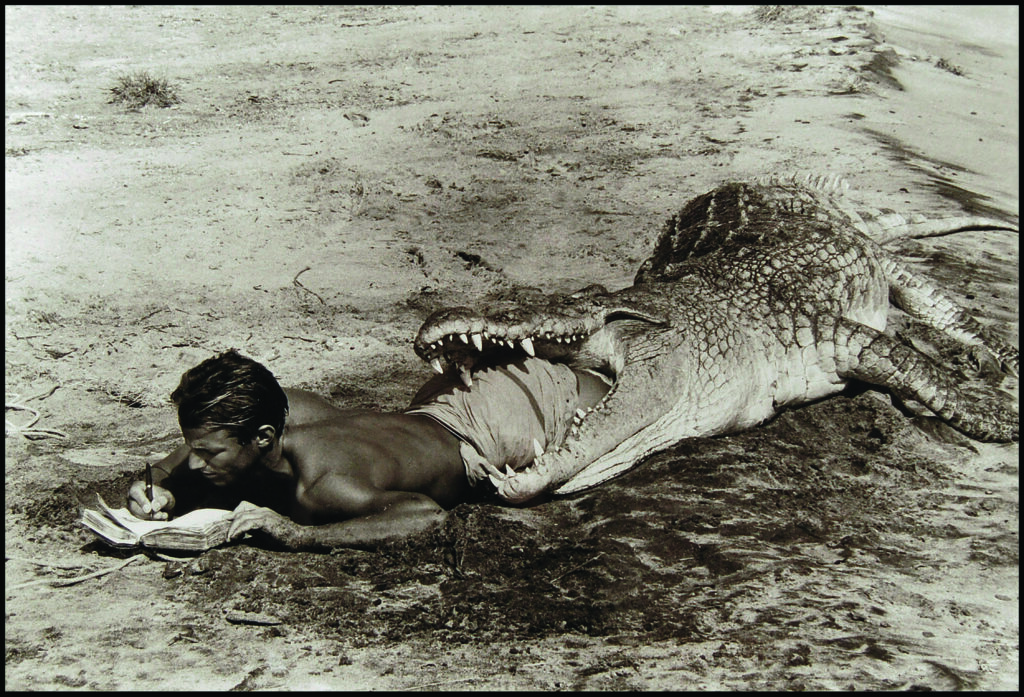
By Anson H. Beard
My uncle, Peter Beard, lived his life with no regrets, and he had an uncanny ability to live in the present and never look back. As I reflect on Peter’s well-lived life, I personally have one great regret regarding him.
In June of 1989, Peter called me right after I graduated from high school and asked me to spend the summer with him at Hog Ranch, his camp outside Nairobi, Kenya. He needed an assistant for the summer and my cousin, Alex Beard, who had been to Hog Ranch with Peter before, had to back out. My parents were dead set against it, and I remember my father telling me that if I went, “there was a 10 percent chance I’d return home in a pine box.” So, I did not go.
Peter told me that my father was probably right about the 10 percent, but I should go anyway, “because that means there’s a 90 percent chance you’ll have the best summer of your life.” I will never forget that. I should have gone. Peter never worried about the 10 percent.
I have never met anyone like Peter, and I cherish the time I was able to spend with him. Never boring, totally unpredictable. His quick wit, passion, intensity, humor and raw charisma were infectious. He listened and observed. He obsessed. Painfully smart. Everyone wanted to be around him. My father recently said that “no one had more fun having fun than Peter.” I remember a Christmas Day visit to my grandparent’s house, and Peter dutifully stopping by with his new wife, Nejma. When he left, he said, “We should all get together and stare at each other again real soon.” Peter had no interest in tradition.
Peter was by no means perfect, but to his credit, he always volunteered that he was flawed. Aren’t we all? Drama followed him everywhere, but he welcomed it.
He had a good heart.
What should never be forgotten about Peter, despite his legendary love of chaos and hedonistic tendencies, are his raw artistic talent, creative genius, and the body of contemporary art that survives him.
If Peter did not have that talent, and the passion and ambition to harness it, he would probably have been written off as a lightweight and a dilettante. When he graduated from Yale in 1961, he took a risk that, at that time, was unheard of. He followed his passion and hightailed it to Africa with nothing but his camera and his ideas, shunning all of the corporate opportunities that lay before him on his home turf of New York City, with his impressive educational pedigree of Buckley, Pomfret and Yale. By the time he was 27, he had written and photographed The End of the Game, which launched not only his career, but made him a hero of the modern-day conservation movement. As his friend Mick Jagger recently wrote, “Peter wasn’t afraid to take risks.” I have always admired that he took that first risk, much to the chagrin of his parents. He knew what he wanted to do with his life, and he went for it.
Peter did not much like being referred to as a photographer. I remember a friend of mine, now a successful artist in his own right, asking Peter for advice when he was just starting out with a camera. He said, “Don’t worry so much about the camera. Focus on the subject matter. The subject matter! Create.”
Have you ever met anyone with Peter’s background who did not own a wallet, a watch or a phone? Peter was truly wild. He raved for years about “stress and density,” “Tsavo revisited,” “celebrating consciousness” and how “we are the disease.” Half the time I did not know what he was talking about. I certainly do now.
Montauk was part of Peter’s soul and he loved his property there and the laid-back nature of the town and its residents. Montauk really is The End: a great place for fellow artists, dreamers and escapists.
Peter died where he lived—in nature, in a town that he loved, Montauk—and we should be at peace with it.
“Life is just a flick of the fingers,” Peter said. “Let’s face it. And any little bit you can expand it or enrich it, I think you want to push that and do it.”
Peter Hill Beard
1938-2020





